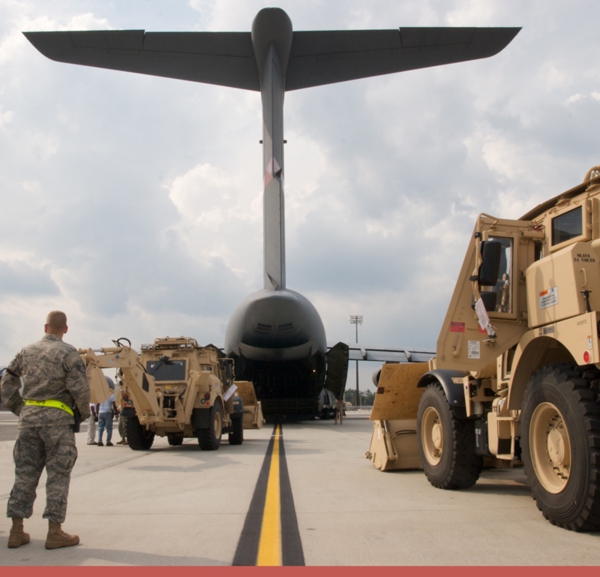Studying the strategy and tactics used in military and applying it to business needs is nothing new. For decades books such as Sun Tzu’s The Art of War and Miyamoto Musashi’s The Book of Five Rings have been standard reading in business courses at universities. These books, as well as the lessons of military campaigns throughout history have led to businesses in the modern age copying one specific and very useful concept that has proven essential in their operations – logistics.
Logistics Defined
The basic premise of logistics is in managing the movement of resources between specified points, from origin to destination. This involves being able to predict ahead of time what will be needed and where it should go. It also requires the ability to adjust to changing factors so that there are as few problems with shortages and waste as possible.
In military applications, this means procuring and moving supplies so that they are accessible when needed. Provisions, equipment, vehicles and even people and portable facilities all need logistical operations to effectively transport and store for future use. The ability to carry this out properly often means the difference between victory and defeat in war.
Though in business the failure of logistical operations may not lead to loss of life, it can lead to a company failing and going under. This is especially important in an increasingly globalized world, where more is shipped overseas and the customer needs must be met in a timely manner.
Military Lessons of Logistics
Regarded by many as the most crucial element of success in a military campaign, failure to operate effectively can lead to anything from mass starvation of troops to lack of weapons and a defenseless army. Ineffective logistics slow an army down while they have to wait for necessary supplies. In the past, this meant some complicated maneuvering. Today’s technologies make the process a little easier.
Military Logistics and Business
Following World War II, logistics became a common term when dealing with the movement of goods in business. Many of the same strategies from war were applied by companies successfully, increasing their ability to thrive. The main point of logistics is still in moving goods from source to destination. Unlike in military operations, there are no lives to lose, so the balancing of such elements as cost and reliability is more important and thus more complicated. For a business to be successful, things must be where they need to be and on time, but there are plenty more options available on how to get this done.
Like the military, businesses organize their logistical operations centrally to allow them to be more effective. There is a specific chain-of-command and each location where goods may be transported to and from has its own people in charge of local logistics. Most of the basic guidelines that apply to the military also apply to company logistics, including such things as proper storage, time constraints and minimizing waste and shortages.
Logistics Evolving to Meet Business Needs
Since the focus on moving goods is no longer an expanding front line, the study of logistics has needed to evolve to meet new demands. Companies move items all over the world, from source to assembly to customers with many storage facilities along the route. Often, shipped goods will undergo many changes before reaching their final destination.
Businesses must also pay more attention to what sort of condition items arrive in when they reach their end destination. This is important in military applications as well, but disgruntled soldiers have little effect on whether the military continues to operate. Too many angry customers can lead to business failure.
Businesses Evolving to Meet Logistical Needs
As logistics becomes more important in the running of a successful business, the study of this science has become a lot more complicated and innovative. For this reason, companies often choose to outsource their logistical needs to businesses specialized in dealing with them. This is usually more efficient and cost-effective, as those companies already have all the necessary systems in place and are just waiting to refine them to meet the specifics of a particular customer.
Just like in ancient times, when an army’s ability to move resources meant victory or defeat, logistics is one of the most crucial areas for determining achievement in business today. Having the right tool in the right place at the exact right time can turn a company into a booming success or a bring it crashing to the ground. Failure to meet logistical needs can be one of the quickest ways for a company to meet its end permanently.
This article was written by Jet Russell. In his spare time Jet likes to contribute articles on a whole range of topics including everything from business, to travel, to Internet marketing.

